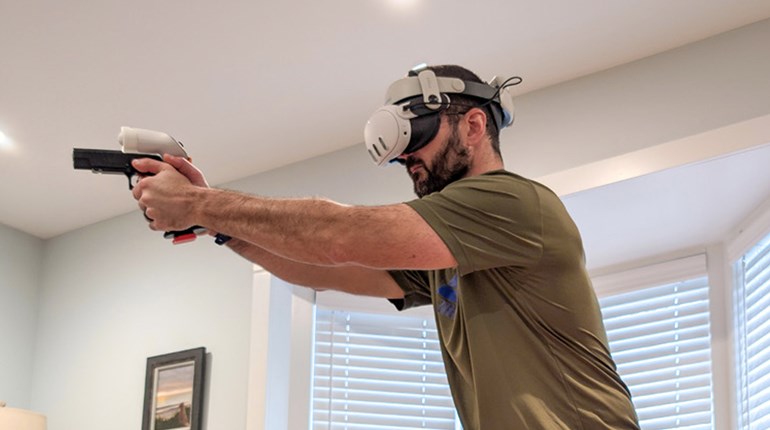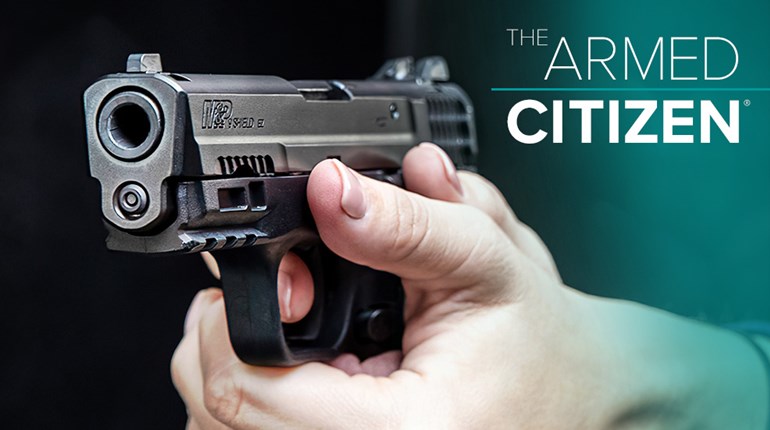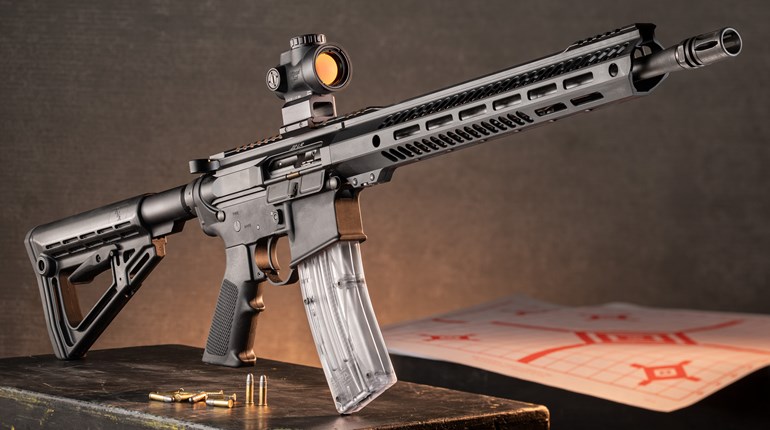
Not for the first time, we suggest that Americans benefit from the best-trained and most dedicated law enforcement in the world. To pretend otherwise is demonstrably incorrect and quite possibly dishonest. That they are human, and therefore make (rare) mistakes, does not alter this truth in any important way.
But another (unwelcome) truth is that they also cannot be everywhere they are needed. “In the end, we’re hoping to make any sort of trouble in churches impractical. That’s why we call them sanctuaries, after all.”
Though three decades in coming, it’s a relief that the only practical supplement to law enforcement protection, and one which plays no favorites by age, strength or gender, is finally available to most Americans: concealed carry.
Where the trouble starts is with any suggestion that “carry” is an ethical middle ground between the arrival of LE and perhaps unsurvivable submission. It evokes everything from dark hints of incompetence to shrieking allegations of pandemic mental illness, the essence of which is always the same: Nobody but law enforcement is qualified to defend. “Throwing gasoline on a fire” is the only way to describe the exchange when the conversation advances to include our places of worship.
Whether middle ground or no-man’s-land, few understand the dichotomy like Chuck Chadwick.
We met Chadwick through happy accident: Over the years, we’ve helped train several church security groups, and during a mid-summer session his name reached us quite by chance. A few phone calls later, and in his unfailingly cordial way we found ourselves at the 11th Annual National Church Security Conference in Colorado Springs.
In retrospect, we concede that the “11th” part should have been a bigger clue.
Our vision of a small-scale and well-intentioned but “shoestring” conclave evaporated the second we walked through the door. Instead, Chadwick’s 20 years of experience in asset protection, disaster recovery, business continuity and emergency planning for worldwide corporate clients filled up any spaces left between his training/certification credentials and good ol’ fashioned experience. The tiny remaining chinks were filled by federal alphabet-soup types who earn our discretion.
Quite simply, Chadwick’s National Organization of Church Security and Safety Management (NOCSSM) has filled the yawning gap between well-intentioned parishioners with CCW permits and often-unaffordable regular law enforcement when it comes to security for faith-based organizations.
“It all started in a Dallas-area church of 6,000 TWA (typical worship attendance),” Chadwick said. “One day, a person nearly made it to the pulpit with the clear intention of harming the pastor. We had uniformed security in the form of off-duty police, but they were spread too thin and just couldn’t intervene. Nobody was seriously hurt, but it was way too close.
“Our first efforts to provide something better turned up plenty of volunteers, which helped, but as you can imagine they ranged widely in age, experience and capabilities. As the church grew, though, adding TV and radio broadcasts as well as campuses, it became obvious we had to standardize our training and approach.”Parishioners engaging in defense evokes everything from dark hints of incompetence to shrieking allegations of pandemic mental illness, the essence of which is always the same: Nobody but law enforcement is qualified to defend.
Chadwick said eventually he had 39 “officers,” and routinely interfaced with seven law enforcement agencies.
“By the time I left in 2005, the church had 22,000 TWA, and an enviably secure environment,” he said. “We maintained an open, welcoming atmosphere for worship but had trained personnel and clear (and well-practiced) plans for emergency situations.
“We also coordinated with other churches. ‘Iced tea and pizza’ gatherings taught us a lot, and allowed us to share ideas. One of the most interesting things we learned was that we were also sharing some serious bad guys too: confidence men, serial rapists, etc.”
A change in Texas law brought Chadwick to a decision point in 2006. Security “volunteers” were now problematic, with the state requiring licensure. Gatekeepers Security Services (now part of NOCSSM) was formed, and now provides security services and assessments all over the nation.
These days, as you might imagine, Chadwick can be hard to track down. In the wake of the June attack on Emanuel African Methodist Episcopal Church in Charleston, S.C., more and more churches are understandably concerned about the welfare of staff and parishioners.
“That’s the whole reason for our organization,” he told us. “The requirements for state certifications make the standard skills clear in places like Texas, but wherever we go, we teach the legalese, self-defense regulations, civilian arrest powers and defensive tactics that we know work. In terms of firearms qualification, we see LE and military volunteers who already have some skills, but they are by no means the majority. So we set the bar pretty high, and use the FBI qualification course of fire as our standard. Our goal is to get security volunteers ready for the challenges they may have to face, but in such a way that they’re also in full compliance with the laws of their state.
“The expertise we share is as much about prevention as actual defense,” he added. “In the end, we’re hoping to make any sort of trouble in churches impractical. That’s why we call them sanctuaries, after all.”
Dare we say “Amen?”
Now Carry on. Go to Part II.


































